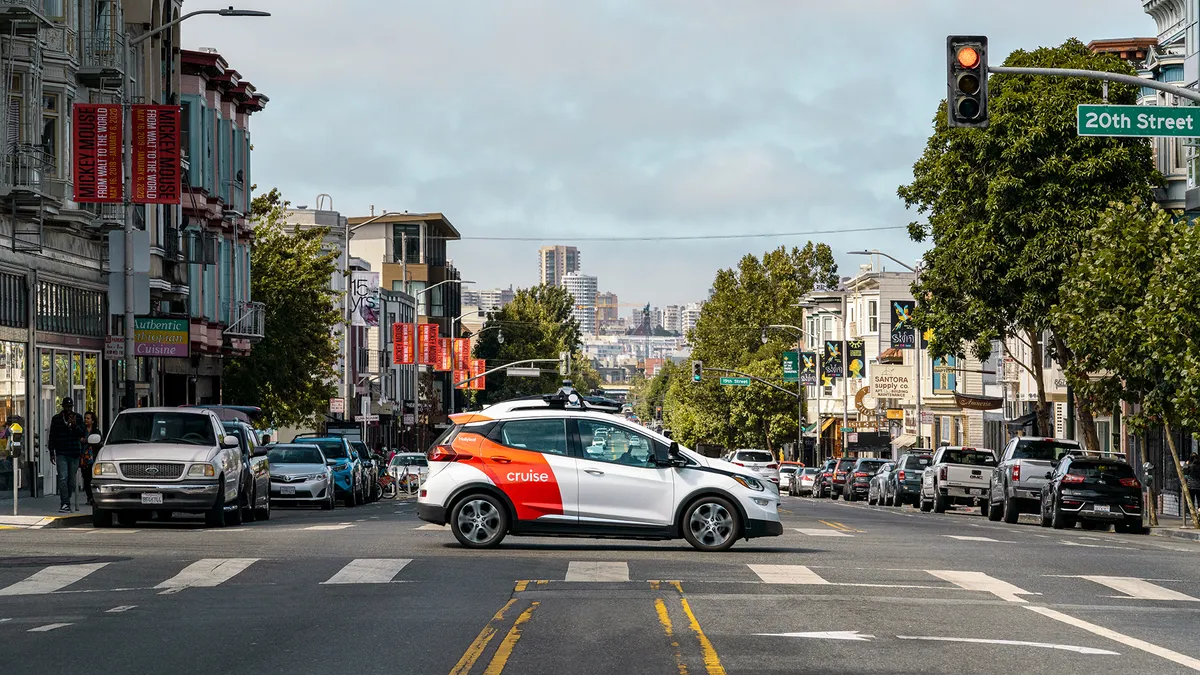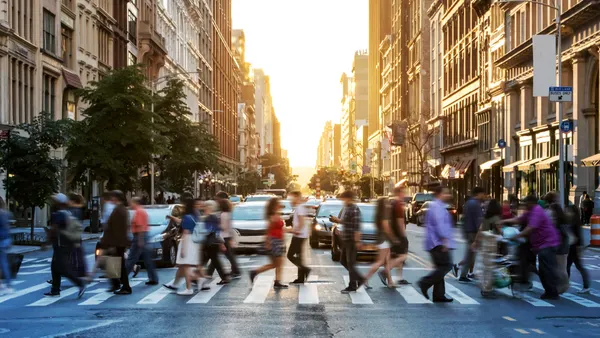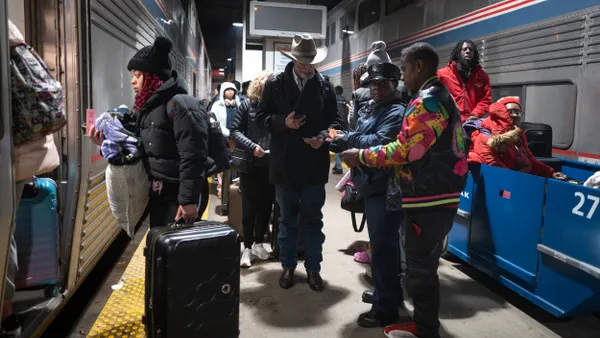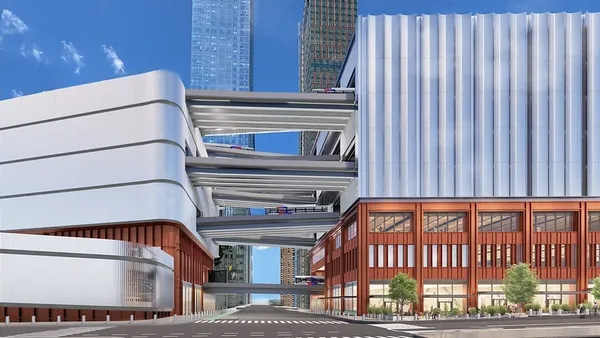Dive Brief:
- Less than 10 days after the California Public Utilities Commission agreed to allow Cruise and Waymo to operate driverless, paid robotaxis throughout San Francisco 24 hours a day, two Cruise vehicles were involved in crashes, with injuries to at least one passenger.
- The two Thursday night accidents follow an Aug. 11 event where nearly a dozen Cruise driverless vehicles came to a standstill at an intersection in North Beach, blocking traffic for 15 minutes before moving again.
- Cruise agreed to a California Department of Motor Vehicles request to reduce its robotaxi fleet in San Francisco by 50% while the DMV investigates these incidents.
Dive Insight:
Cruise, a subsidiary of General Motors, has been plagued by incidents involving its autonomous ride-hailing vehicles stalling in traffic, blocking emergency vehicles and interfering with emergency responses. The CPUC’s approval of the two robotaxi companies’ request to expand the service territory and service hours came over the objection of San Francisco officials.
On Aug. 18, the night of the two collisions, Cruise posted on X, formerly known as Twitter, “We are investigating to better understand our AVs performance, and will be in touch with the City of San Francisco about the event.”
In the first of the two collisions, a driverless robotaxi with one passenger was struck by a fire truck when it entered an intersection on a green light as the emergency vehicle, with its siren on, attempted to cross. Greg Dietrerich, Cruise general manager for the San Francisco Market, subsequently wrote on the company’s blog, “The Cruise AV did identify the risk of a collision and initiated a braking maneuver, reducing its speed, but was ultimately unable to avoid the collision.”
The day before the two crashes, San Francisco City Attorney David Chiu filed a motion with the CPUC to temporarily halt the expansion of robotaxi service. “We have seen that this technology is not yet ready, and poor AV performance has interfered with the life-saving operations of first responders,” Chiu said in a statement.
According to a DMV statement provided to the Associated Press, “Cruise has agreed to a 50% reduction and will have no more than 50 driverless vehicles in operation during the day and 150 driverless vehicles in operation at night.”
Cruise autonomous vehicles are also the subject of a preliminary investigation initiated by the National Highway Traffic Safety Administration in December.











